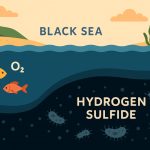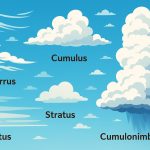The Dead Sea, located between Israel, Jordan, and Palestine, holds the title of the saltiest large sea on Earth. Its salinity is around 30–35%, which is nearly 10 times saltier than most oceans. This extreme salt concentration makes it unique among all bodies of water, influencing its environment, ecology, and even human culture.
Why the Dead Sea Is So Salty
The Dead Sea is a landlocked lake with no outlet to the ocean. Water flows into it from rivers, including the Jordan River, but it has no escape except through evaporation. The region’s hot and dry climate causes high evaporation rates, leaving behind large amounts of salts and minerals that accumulate over thousands of years.
Unique Features of the Dead Sea
- No typical aquatic life – Its high salinity makes it impossible for fish or most plants to survive, hence the name “Dead Sea.” Only certain microorganisms can live there.
- Unusual buoyancy – The density of the water allows people to float effortlessly on its surface.
- Rich in minerals – The water and mud contain magnesium, calcium, and potassium, often used in cosmetics and therapeutic treatments.
- Lowest point on Earth – The Dead Sea lies about 430 meters below sea level, making it the lowest exposed land area on the planet.
Ecological and Health Importance
- The mineral-rich mud is believed to have healing properties for skin and joint conditions.
- Despite its harsh conditions, microorganisms in the Dead Sea help scientists understand how life adapts to extreme environments.
- The area is also a unique natural laboratory for studying geology, chemistry, and climate.
Environmental Concerns
The Dead Sea is shrinking due to water diversion from the Jordan River and mineral extraction. Its water level drops by about 1 meter each year, raising concerns about the long-term survival of this natural wonder. International projects are being considered to restore its water balance.
Conclusion
The Dead Sea is the saltiest sea in the world, a natural marvel with unique properties that make it both scientifically important and culturally significant. Its extreme salinity, healing minerals, and position as the lowest point on Earth make it one of the planet’s most extraordinary natural wonders, though its future depends on careful conservation.
Glossary
- Salinity – the amount of dissolved salts in water.
- Evaporation – the process of water turning into vapor, leaving salts behind.
- Buoyancy – the ability of objects or people to float in water due to its density.
- Landlocked lake – a body of water with no natural outlet to the sea.
- Microorganisms – tiny living organisms, some of which can survive in extreme conditions.


